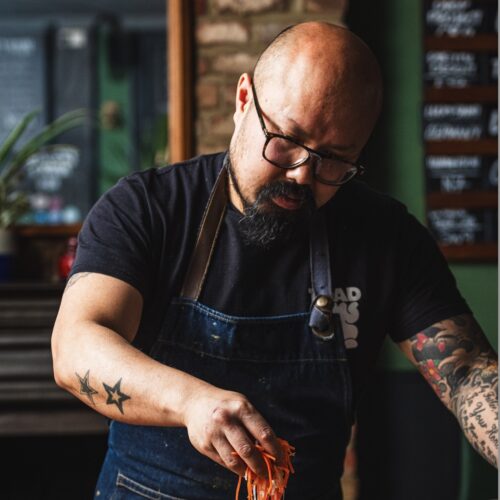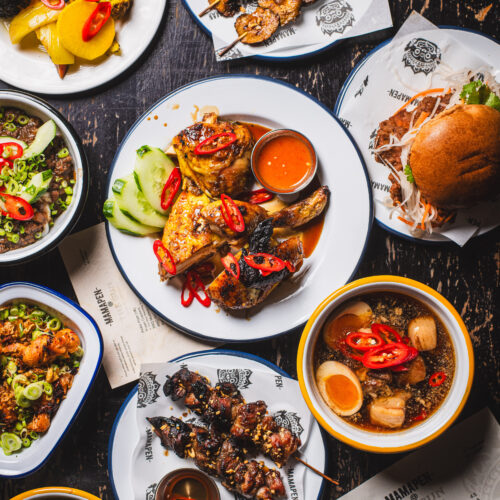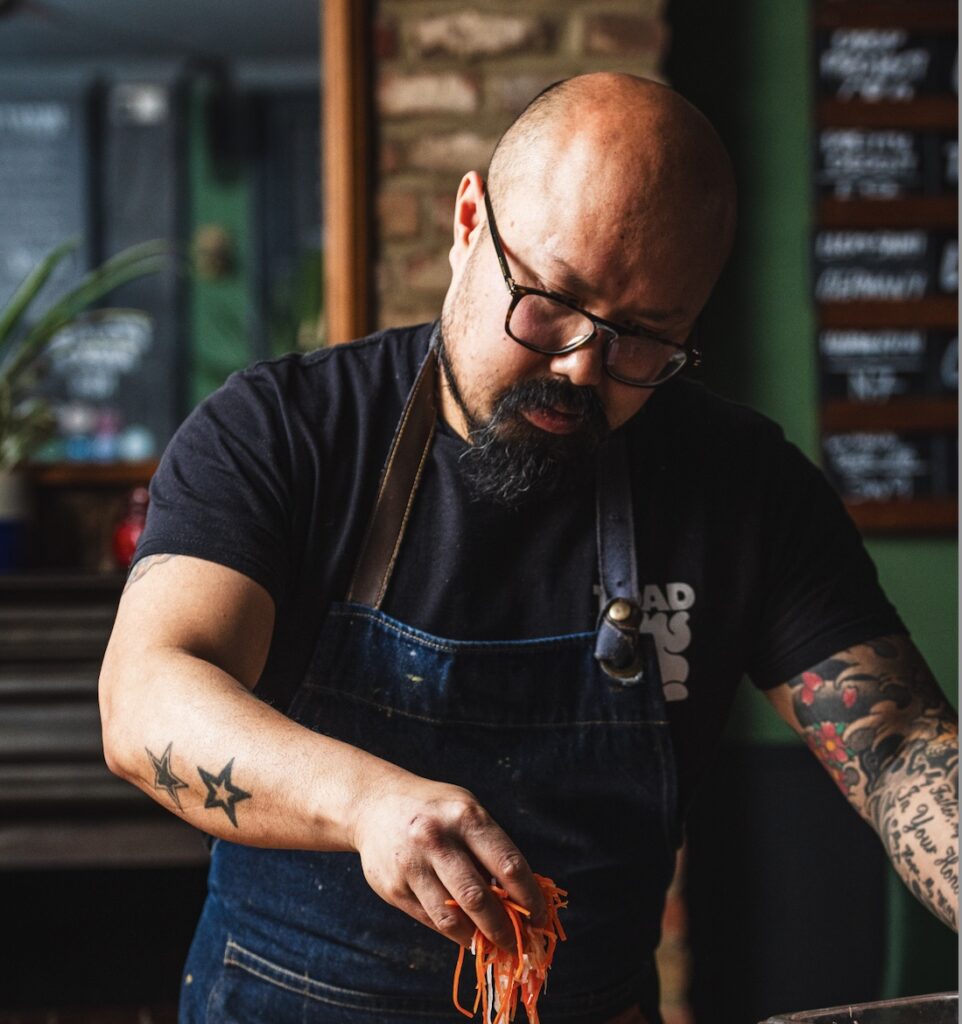ESEA Heritage Month Blog Series – Meet Kaneda Pen

ESEA Heritage Month Blog – Meet Kaneda Pen
Interview by Anna Sulan Masing
Owner and chef of Mampen, a Cambodian restaurant-residency at The Sun & 13 Cantons in Soho. Mampen has had numerous excellent reviews, including the Evening Standard and TimeOut. Kaneda was also listed in this year’s ’30 things we love in the food world’ by the Guardian.
“I’m the head chef and owner of Mamapen, which is a Cambodian restaurant concept in the heart of Soho, London. To the layman, you’d describe Cambodian cuisine as sharing similarities with our neighbours – Vietnam and Thailand. For myself, our national spice paste Kroueng is most important. The lifeblood of the cuisine if you will. Rich in lemongrass, galangal & turmeric you will find this as a base for a multitude of dishes.
I currently live in South East London, in Brockley, and grew up in Gravesend, Kent until I was 18 and left for university. I studied at University of Sussex in Brighton. I switched careers at the age of 37, in 2016. I started with work experience shifts at a restaurant called The Opera Tavern in Covent Garden, which I did for a few months, whilst holding down a full-time job in media and advertising. Eventually I quit to go to culinary school in 2017. Cooking for me is modern day alchemy, creating something greater than the sum of its parts and expressly for the enjoyment of others. That provides me with comfort.
At Mamapen we seek to create dishes with impact. One bite/spoonful and you’re committing that powerful hit of flavour to memory. The dishes ask questions of the cuisine too, rather than recreating carbon copies of things you’d eat in Cambodia, I ask: Can I recreate the flavours of my childhood in the form of fried chicken? Can I create a curry that is a perfect intro to Khmer flavours, but accessible to everyone?
The first iteration of Mamapen, in 2020, was in a pub in Dalston and we were open for a week and a half before Covid forced all pubs to close. We rode the highs and lows of takeaways, social distancing and Eat Out to Help Out, and learned a lot about resilience. During this time we also learned of the comfort we provided locals, and there was indeed an appetite for Cambodian cuisine. I see that as an important part of Mamapen’s history.
Our Goal
At Mamapen we seek to create dishes with impact. One bite/spoonful and you’re committing that powerful hit of flavour to memory. The dishes ask questions of the cuisine too, rather than recreating carbon copies of things you’d eat in Cambodia, I ask: Can I recreate the flavours of my childhood in the form of fried chicken? Can I create a curry that is a perfect intro to Khmer flavours, but accessible to everyone?
The first iteration of Mamapen, in 2020, was in a pub in Dalston and we were open for a week and a half before Covid forced all pubs to close. We rode the highs and lows of takeaways, social distancing and Eat Out to Help Out, and learned a lot about resilience. During this time we also learned of the comfort we provided locals, and there was indeed an appetite for Cambodian cuisine. I see that as an important part of Mamapen’s history.

The Importance of Community
I get a sense of community from the support I have received from Cambodians, proud to see me flying our flag in Soho. And, with the interactions I have with other small business owners in what seems to be a difficult time for all of us. The industry is on its knees, and we need help – 84,000 hospitality jobs have been lost since 2024’s budget. We are already seeing an increasing number of independent businesses closing and without government support, this will only worsen.
One positive I see is the growth of pop-ups and venues that are willing to provide platforms for emerging talent. It is an exciting landscape of short-term residencies and chefs just giving it a good go. And personally, I was really excited to have cooked at Big Grill in Dublin this August, a festival of smoke and live fire cookery and the largest of its kind in Europe.
To read another interview from the ESEA Heritage Month series, click here.

